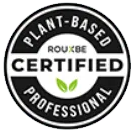Athletic Performance
Do something your competition isn’t doing!
Advantages of a Plant-Based Diet for Athletes
The Academy of Nutrition and Dietetics and the American College of Sports Medicine endorse plant-based diets for optimal athletic performance, emphasizing nutrient-rich, diverse plant foods. Athletes are advised to consume a variety of fruits, vegetables, whole grains, legumes, nuts, and seeds to ensure a balanced intake of essential nutrients, including protein, iron, calcium, and omega-3 fatty acids. Strategic meal planning is recommended to meet energy demands and sustain endurance. Supplemental nutrients like vitamin B12, vitamin D, and iron may be necessary. The Academy acknowledges the potential benefits of plant-based diets in reducing inflammation, enhancing recovery, and improving cardiovascular health, promoting overall well-being for athletes.
A comprehensive approach to optimal nutrition for athletes involves balancing macronutrients, micronutrients, hydration and timing of meals to support performance, recovery and overall well-being. Key considerations include:
- Macronutrients: Carbohydrates, Protein and Fats
- Micronutrients
- Hydration
- Meals and snacks planning and timing
- Supplements
- Post-exercise meals
- Consultation with a registered dietitian or nutritionist



